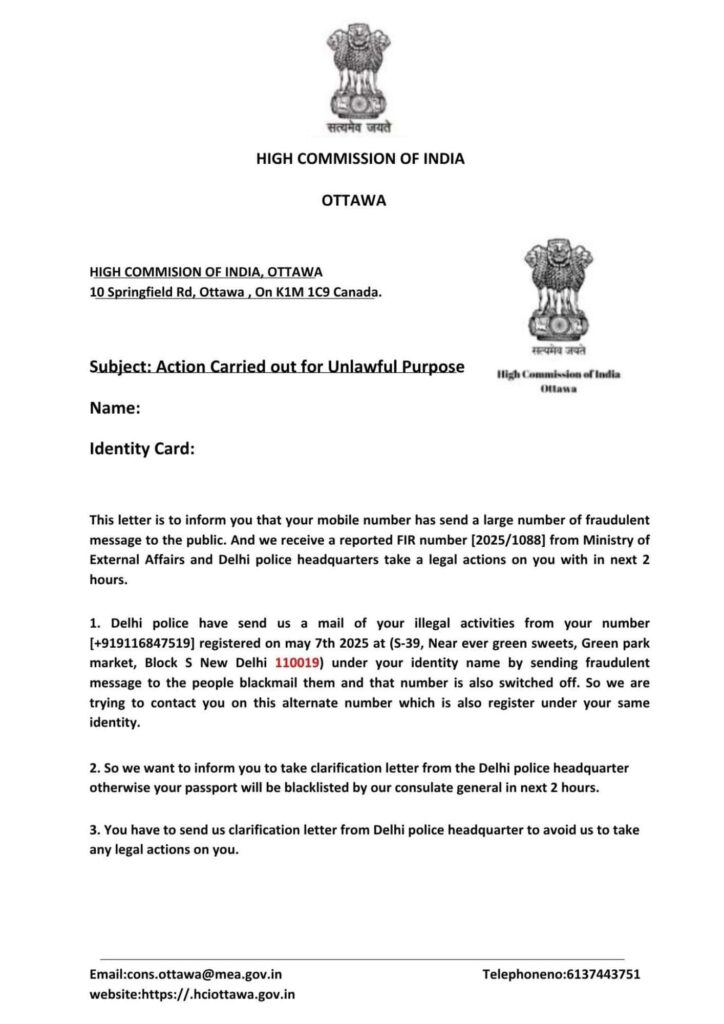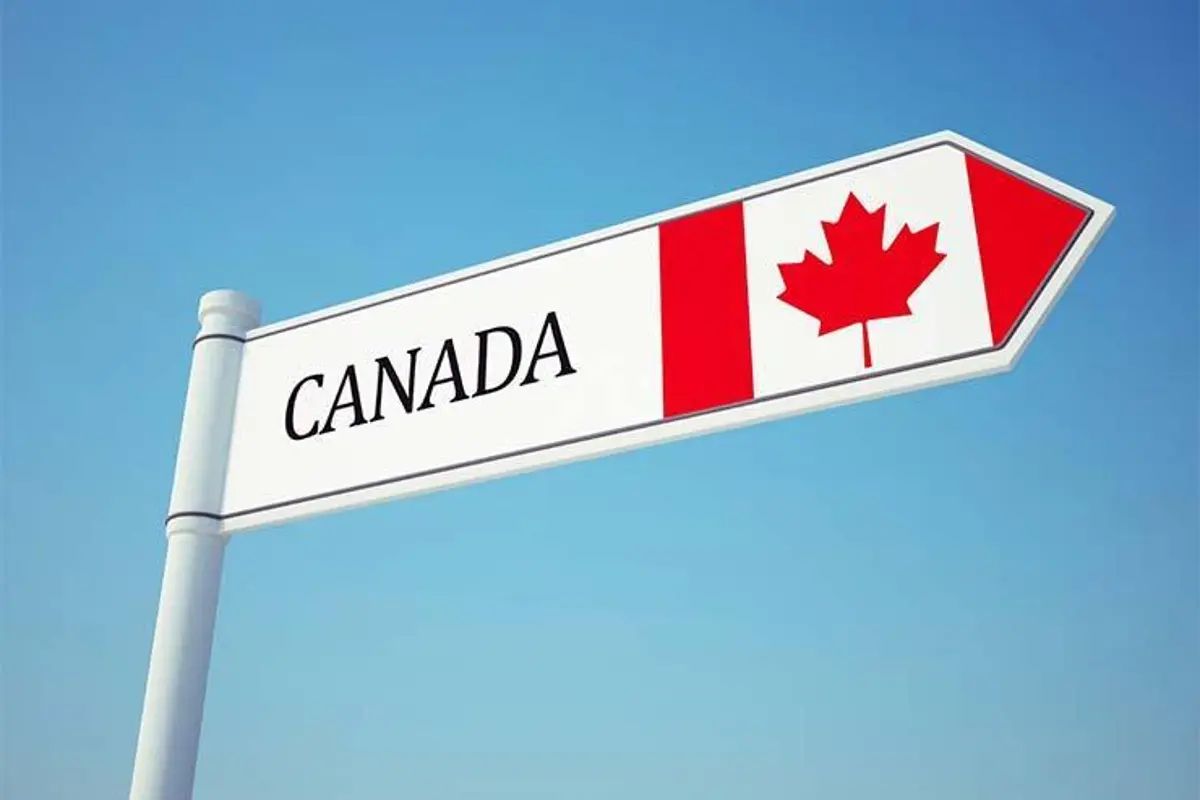If you’re planning a trip to Canada or navigating visa and immigration formalities, pay close attention, fraudsters are targeting the Indian expatriate and traveller community with a new wave of scams.
The High Commission of India in Ottawa has issued a public advisory warning Indian nationals and Indian-origin residents in Canada about a rise in fraudulent calls, spoofed emails, and fake embassy communications.
The scams are mostly targeting those with Canadian visas or pending immigration applications, often using intimidation tactics or urgent payment demands to exploit them.
Visa Scam Alerts: Fake Calls, Invented FIRs, and Threats!
According to the advisory, multiple individuals have reported receiving alarming phone calls and emails claiming to be from officials at the High Commission of India in Ottawa, or the Consulates General in Toronto or Vancouver.
These messages typically accuse recipients of being involved in criminal activities or visa violations and demand immediate action, often involving the payment of “application fees” or submission of personal documents.
What makes this worse: some scammers are spoofing actual embassy phone numbers listed on official websites, making the calls look legitimate. Others have gone as far as creating forged documents bearing the High Commission’s logo and address.
Real Example of a Fake Document
One such fake letter, now circulating widely on messaging platforms, accuses a recipient of using their phone number for “fraudulent messages.” It references a fake FIR number, includes absurd claims about Delhi Police actions, and demands a “clarification letter” within two hours, threatening to blacklist the person’s passport.
The formatting mimics official letterheads, but the language and threats are glaring red flags.

What Should Travellers and Visa Applicants Do?
Stay Sceptical: Any call or email alleging criminal activity and demanding urgent action should immediately raise red flags.
Verify Before You Act: If someone contacts you claiming to be from an embassy or consulate, cross-check their contact details directly on the official High Commission of India website. Don’t trust caller ID or email addresses alone, they can be easily faked.
Never Share Personal Details or Make Payments: Consular officials will never ask for personal bank details, demand payments over the phone, or threaten to block your passport for unverified offences.
Embassy’s Response: Don’t Fall for It
The High Commission has made it clear: they do not call individuals to demand payments, threaten arrests, or ask for police documentation. These are not legitimate consular practices.
If you receive such communications, do not engage. Instead, report the incident immediately to Canadian authorities.
How to Report a Visa Scam in Canada
The embassy encourages all victims and potential victims to report suspicious correspondence.
Final Thoughts
These scams are not just an annoyance; they can cause real harm. If you’re a traveller, student, or recent immigrant in Canada, be cautious about unsolicited calls that appear to come from government agencies. And remember, no legitimate consular office will ever threaten you with arrest over the phone.
To get daily travel news & updates, follow us on Facebook, X (Twitter), LinkedIn, Instagram, or Threads.
